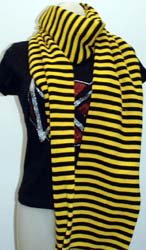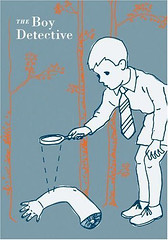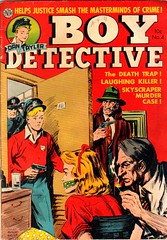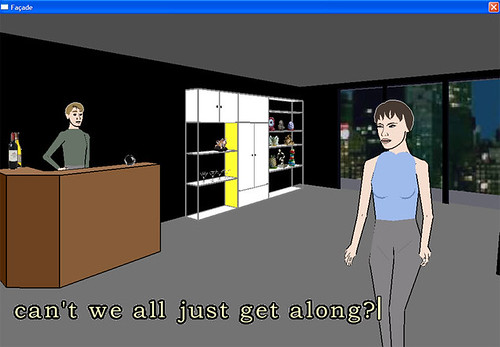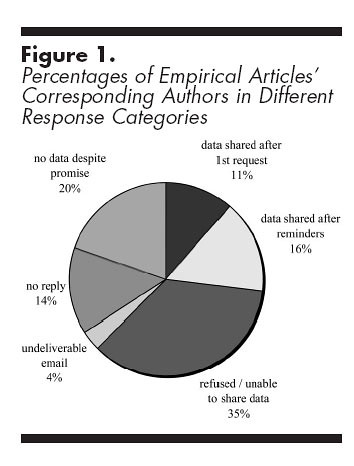The three basic genres:
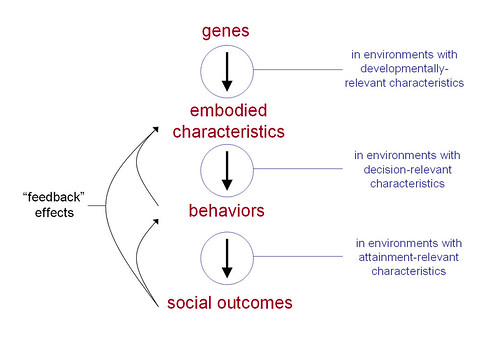
1. How do a person’s genes and environments combine to produce the embodied characteristics (e.g., the psychology) of the person?
2. How do those embodied characteristics interact with the circumstances of the immediate situations to produce actions?
3. How do the actions of individuals interact with the structure of the networks and societies in which they are part to produce biographical attainments?
Note: more properly, one should add "at a particular point in biographical time" before the question mark for each question.
The eight basic plots:
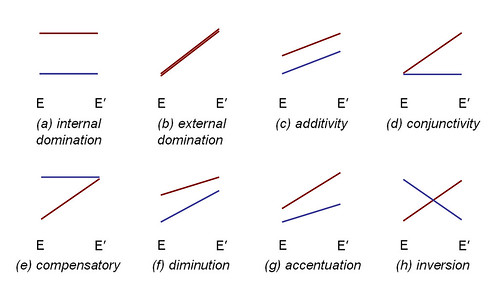
The red and blue lines are different genotypes or phenotypes or some-as-yet-unknown-word (agencies?). E is the default environment, and E' is the environment with some natural or artifical intervention.
As if we were talking about genes -> embodied characteristics, the eight plots briefly:
(a) Different genotypes cause different outcomes that are the same across environments.
(b) Different genotypes produce the same outcome that depends on the environment.
(c) Genes and environments both have effects, and the effects of each are not affected by the other.
(d) Environmental cause only has effect for some genotypes.
(e) Genes produce different outcomes in the normal environment, but under a compensating environment produce the same outcome.
(f) The environmental cause makes the effect of genes less than it would otherwise be.
(g) The environmental cause makes the effect of genes greater than it would otherwise be.
(h) Different genes do better or worse in different environments.
Anyway, if somebody ever asks you to think about "genetics and social structure" and you start doing background reading, you'll find that you are soon reading about debates about genes v. environment, person v. situation, agency v. structure. These are very different things. And, yet, you do have a entity and a substrate in which a transformation of the entity occurs and the project of telling a story about how the character of the entity and the character of the substrate caused the transformation to happen as it did.
